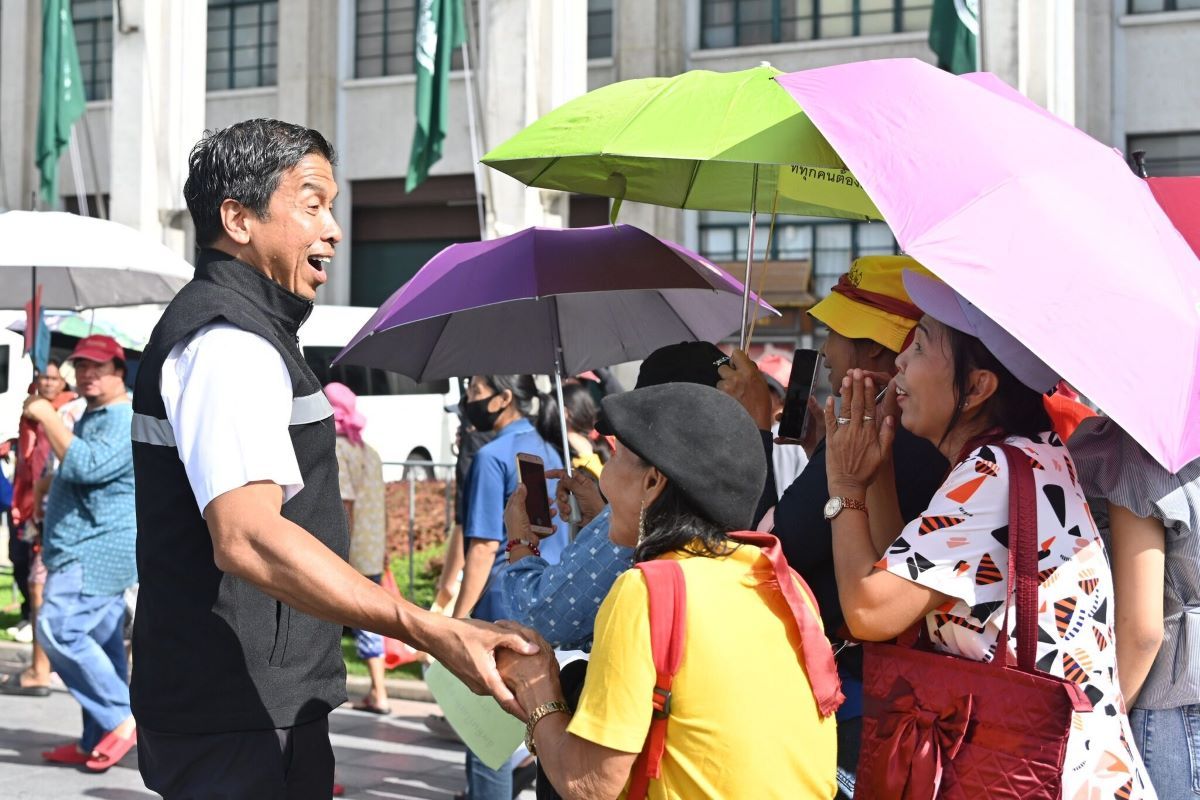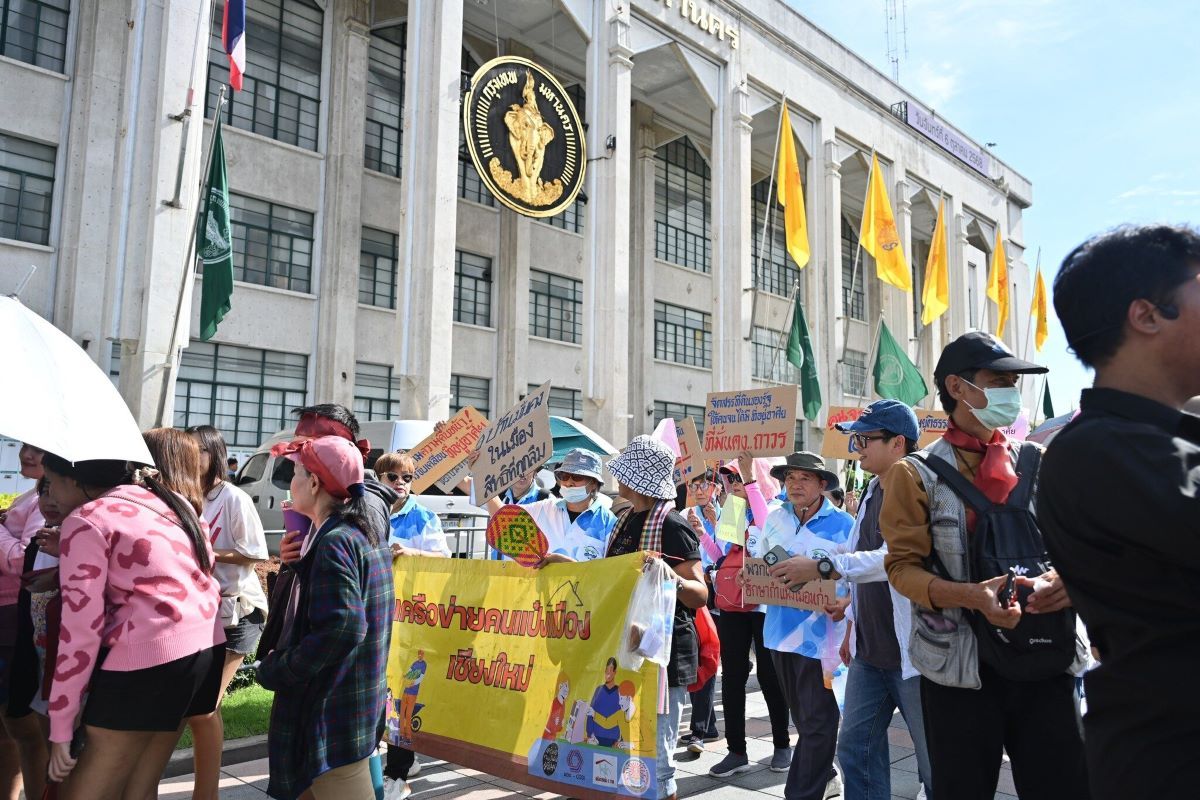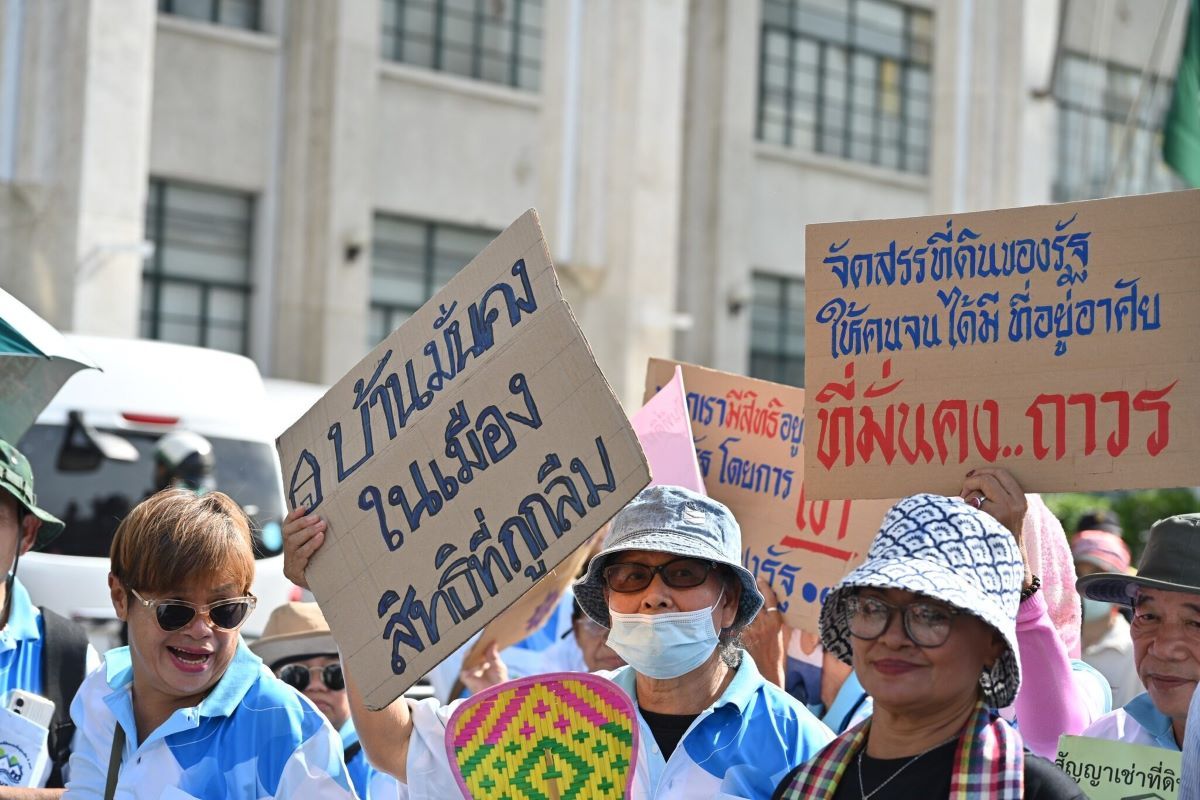

Bangkok Governor Chadchart Sittipunt has pledged to address housing issues, vowing to bring all informal communities under the “Ban Mankong” housing scheme.
Yesterday, October 6, members of the People’s Movement for Land and Housing Rights submitted a nine-point proposal to the Bangkok Metropolitan Administration (BMA) during an event marking World Habitat Day. Chadchart personally received the document at the Lan Khon Muang square in front of the Bangkok City Hall.
The governor emphasised the importance of housing as one of the three pillars of security, alongside public health and education.
“Housing is a basic foundation. Bangkok doesn’t own land but manages it on behalf of the government, especially public land. We must find solutions together. The principle is: offer secure alternative housing before relocating people, ideally through the Ban Mankong project. There is enough land in this country for everyone.”
He confirmed that all nine proposals had been acknowledged and will be reviewed for implementation.

The proposal included the following nine policy recommendations:
- Access to basic utilities: Ensure temporary house registration, running water and electricity for all informal communities.
- Halt evictions: Review demolition orders that affect low-income residents and explore fair negotiation options.
- Community land titles: Promote community land deeds to guarantee housing rights.
- Fairer tax structure: Revise land and building tax measures that disproportionately impact the poor.
- Urban planning reform: Adjust Bangkok’s master plan to reflect real housing needs.
- Emergency shelters: Expand access to temporary shelters (Ban Imjai) for the homeless.
- Transparency in land data: Disclose land under BMA management to aid in transparent housing planning.
- Protected economic zones: Support areas for informal work, like street vending and community markets.
- Establish a joint housing committee: Create a formal committee led by the Governor and include civil society representation to oversee housing policy.
Chadchart said Bangkok’s urban population must be diverse and inclusive, and affordable housing is key to a functioning city.
“There are over 2,000 informal communities in Bangkok. Many are encroaching on public canals. We’re working with agencies like the Community Organisations Development Institute (CODI) and the Treasury Department to move these residents into legal, secure housing under the Ban Mankong model.”
He added that the ultimate goal is for all informal communities to be included in the system, one step at a time, starting with areas like Khlong Prem Prachakorn.
“We have to do this gradually, with empathy. These people have families. We can’t just remove them. We need to ensure they have a place to go.”

Deputy Governor Sanon Wangsrangboon added that while Ban Mankong has supported 5,000 to 6,000 households since 2003, recent years have seen a sharp drop, with only around 100 to 200 households per year securing loans through CODI.
“Bangkok has a Housing Development Office, and while the BMA doesn’t directly fund housing, we facilitate access to CODI’s housing fund. We’ve helped around 1,800 households so far.”
Future plans include negotiating land access with state agencies like the State Railway of Thailand and the Treasury Department, allowing 450 insecure communities to eventually receive legal land access and funding.
The story Bangkok Governor accepts proposals to fix housing crisis as seen on Thaiger News.
